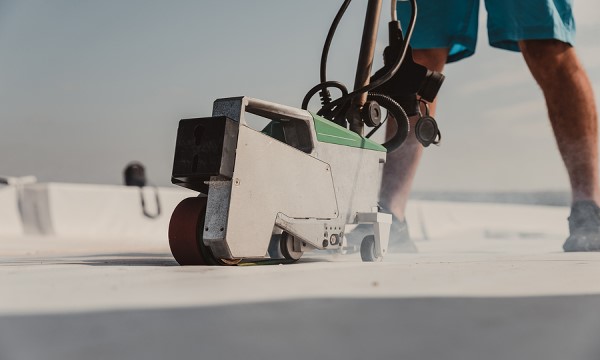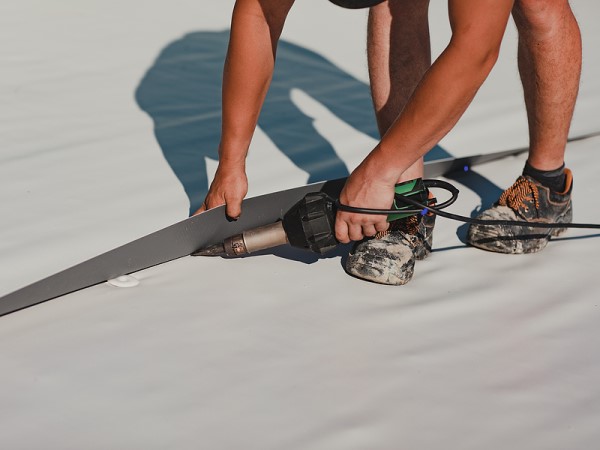Thermoplastic Single-Ply Roofing (TPO)
At Rackley Roofing, we specialize in installing TPO membranes throughout Tennessee. Leading manufacturers and customers know our name when it comes to efficient, cost-effective, and expert TPO roofing applications.
What is TPO?
Thermoplastic Polyolefin (TPO) is a single layer of synthetic membrane used primarily in commercial roofing. The materials used in a TPO installation are engineered to be highly heat-reflective and provide an energy-efficient alternative to EPDM and PVC. Commonly installed on flat roofing systems, TPO is one of the fastest-growing installations in the commercial roofing industry. Today, more than 40% of commercial and industrial buildings have TPO roofs.
Affordability:
TPO roofing is renowned for affordability, offering a budget-friendly roofing solution that doesn’t compromise on quality or performance. When compared to similar options like PVC and EPDM, TPO significantly reduces costs for commercial property owners, often resulting in savings of several thousand dollars. This cost-effectiveness, coupled with its reliability, makes TPO the preferred choice for roofing in commercial and industrial settings.
Durability:
TPO is a standout choice in commercial applications because it is known for durability. TPO roofs are equipped to withstand challenging weather conditions, including rain, sleet, wind, and hail, thanks to their Class 4 impact rating. High-quality TPO membranes generally achieve a Class A fire resistance designation from the UL Solutions (UL). With these features, TPO membranes last approximately 20-30 years if properly maintained and our RoofCheck Program makes that maintenance easy.
Energy Savings:
Heat-reflective properties allow TPO membranes to deliver substantial energy savings. During warmer months, buildings with TPO roofing experience a noticeable reduction in air conditioning usage compared to structures using alternative roofing materials. In fact, nearly all white or light-colored TPO membranes meet the EPA’s strictest ENERGY STAR qualifications, contributing to energy efficiency and cost savings.
Environmentally Friendly:
TPO roofing distinguishes itself as an environmentally conscious choice in the realm of commercial-grade roofing. Unlike many counterparts, TPO doesn’t contain environmentally hazardous chemicals, such as chlorine. Its composition predominantly includes various rubber materials rather than non-renewable substances like plastic. Notably, TPO roofs are 100% recyclable, posing no harmful environmental risks at the end of their lifespan. This eco-friendly approach provides the comfort of sustainability and environmental responsibility.
Choose the Best TPO Roofing Contractors
Selecting the right roofer is paramount to ensuring a successful TPO roofing project. When choosing Rackley Roofing, you can count on our expertise and experience to deliver high-quality results with a customer-centric approach. Contact us today to schedule a consultation with our roofing experts and embark on your TPO roofing journey.




